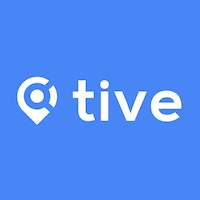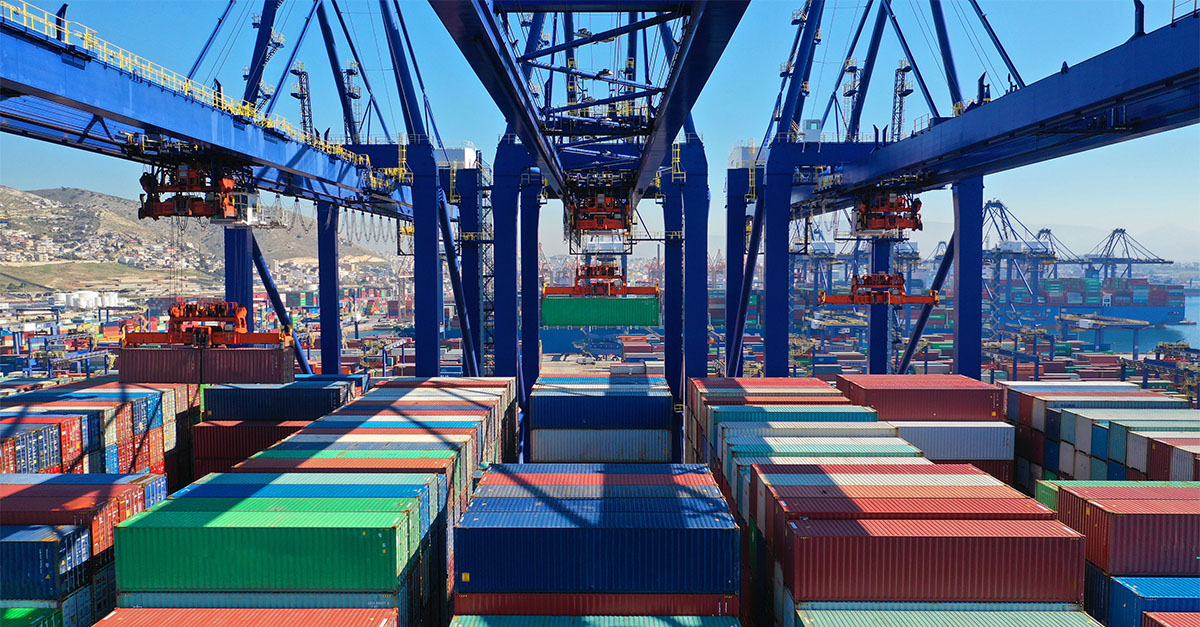Bilan de la semaine : Thieves Double Down et Regulators Dial Back

September 4, 2025
October 29, 2025
x min read

Cette semaine, nous voyons tout le monde se démener pour réparer ce qui ne fonctionne pas dans le monde de la chaîne d'approvisionnement. Le gouvernement fédéral vient de lancer l'opération Boiling Point pour lutter contre vol de cargaison L'épidémie sévit en Amérique, tandis que de l'autre côté de l'océan, des criminels britanniques ont doublé leur transport pour atteindre 111 millions de livres sterling (149 millions de dollars) parce que les relais routiers « sûrs » ne le sont apparemment pas. Et en parlant de bousculement, la FDA a accordé aux entreprises un sursis de 30 mois pour se conformer à la règle 204 de la FSMA après s'être rendu compte que la plupart étaient loin d'être prêtes. Le bon côté des choses, c'est qu'Elsevier a abandonné un outil d'intelligence artificielle pour rendre les formalités réglementaires plus supportables, et nous assistons à de véritables avancées en matière de durabilité de la part de Dell, PepsiCo et SAP qui vont au-delà des discours de bien-être des entreprises. Allons-y.
Le gouvernement fédéral riposte : l'opération Boiling Point entre en action
Le vol de marchandises coûte aux États-Unis entre 15 et 35 milliards de dollars par an, c'est pourquoi Homeland Security Investigations (HSI) a déployé Opération Boiling Point pour lutter contre les équipes criminelles qui font des affaires, avec 7 100 agents spéciaux chargés de l'affaire.
Le manuel de la criminalité
L'unité des crimes financiers de HSI gère l'émission, en collaboration avec des partenaires industriels tels que la Coalition des forces de l'ordre et du commerce de détail, la National Retail Federation et la Transported Asset Protection Association. Ces équipes de voleurs utilisent faux documents et fausses commandes de retrait pour récupérer des envois entiers de produits pharmaceutiques, électroniqueet des produits de soins personnels. Une fois qu'ils ont évalué la marchandise, les professionnels de la sécurité prennent le relais : ils grattent les autocollants de sécurité à l'aide d'un liquide à briquet et de pistolets thermiques, puis vendent le tout sur des sites Web, sur les réseaux sociaux ou chez des grossistes. Certaines opérations expédient des marchandises volées à l'étranger par le biais de services d'expédition de fret, ce qui rend la piste encore plus difficile à suivre.
Là où le crime paie le mieux
Los Angeles, Dallas, Memphis, Chicago et Atlanta sont les villes les plus touchées, car c'est là que le volume de fret est important. Les équipes chargées des vols se rendent dans les ports, les relais routiers et les gares de triage, saisissant tout, des vêtements aux matériaux de construction, avant même que les acheteurs légitimes ne s'aperçoivent de leur disparition. Les criminels à l'origine de ces opérations incluent souvent des membres de gangs violents qui ont découvert que le vol de marchandises et l'empochement de profits énormes sur des marchandises qui devraient être livrées aux magasins et aux clients sont plus rentables que la criminalité de rue.
Le problème des 111 millions de livres sterling (149 millions de dollars) de la Grande-Bretagne
Le vol de marchandises est un problème à l'étranger aussi, et le Royaume-Uni est particulièrement accablé. Des voleurs ont percuté du fret britannique 5 373 fois en 2023, volant des marchandises d'une valeur de 68 millions de livres sterling (91 millions de dollars), et les pertes ont dépassé 111 millions de livres sterling (149 millions de dollars) en 2024. Les criminels ont littéralement doublé leur mise en 12 mois, laissant le géant de l'assurance TT Club et les représentants du gouvernement se demander ce qui les avait frappés.
Un parking « sûr » qui ne trompe personne
Près d'un tiers des vols au Royaume-Uni se produisent dans des relais routiers étiquetés « sûrs », ce qui revient à dire que le Titanic est insubmersible. Ces installations offrent aux conducteurs des équipements de base mais ne peuvent garantir une sécurité absolue. Pensez à un mauvais éclairage, à des clôtures manquantes, à des caméras de vidéosurveillance cassées et à un système de contrôle d'accès qui pourrait être la bienvenue pour les voleurs. Le ministère des Transports a même constaté que 32 % des conducteurs souffrent de problèmes de santé mentale, en partie parce que les options de stationnement sont si inadéquates qu'elles transforment les conducteurs endormis en canards assis.
Quand la sécurité fonctionne
Les arrêts routiers Hollies et Red Lion ont prouvé que dépenser de l'argent pour une véritable sécurité est rentable. Les deux ont vu la criminalité baisser, les taux d'occupation grimper et les conducteurs plus satisfaits après avoir installé un éclairage adéquat, un accès contrôlé, des clôtures décentes et des systèmes de surveillance. TT Club recommande une action coordonnée à tous les niveaux : financement de contrepartie pour les améliorations de sécurité, règles de planification plus strictes, financement public pour les unités de police spécialisées et mise en place d'un réseau national de relais routiers que les criminels ne peuvent pas déchiffrer. Le plan directeur existe, mais les entreprises de camionnage et le gouvernement doivent agir.
Prêt ou pas, la règle 204 de la FSMA arrive pour vos données
La FDA vient de vous donner une bouée de sauvetage. La date limite initiale de janvier 2026 prévue par la règle 204 de la FSMA a été repoussée de 30 mois, mais ne confondez pas cette extension avec un pass gratuit. Les entreprises qui manipulent des aliments à haut risque tels que les œufs en coquille, les légumes-feuilles et les poissons doivent toujours créer des systèmes de traçabilité robustes qui peut fournir des événements de suivi critiques et des éléments de données clés à la FDA dans les 24 heures suivant la demande. Le compte à rebours a commencé au moment où cette règle a été annoncée.
Un cadeau de 30 mois qui continue d'être offert ?
La FDA a prolongé le délai car elle s'est rendu compte que la plupart des entreprises n'étaient absolument pas préparées à saisir, stocker et partager les données de traçabilité obligatoires. Vous devez conserver les dossiers pendant au moins deux ans dans des feuilles de calcul électroniques consultables, tout relier aux codes de lots de traçabilité et vous coordonner avec tous les partenaires commerciaux de votre chaîne d'approvisionnement. L'extension tient compte de ce que les initiés du secteur savaient déjà : la création d'une infrastructure de données capable de suivre les produits, de la récolte à la transformation, en passant par l'expédition et la réception, demande beaucoup de temps et de coordination.
Le nettoyage des données : moins prestigieux que le nettoyage de printemps, deux fois plus important
Votre système de données actuel peut contenir des informations obsolètes, des codes-barres UPC incompatibles et des identifiants propriétaires qui incitent les partenaires commerciaux à se gratter la tête. Les entreprises qui utilisent encore des noms de produits internes doivent passer à des numéros d'article commerciaux mondiaux enregistrés que tout le monde peut comprendre. Les détaillants vous en seront reconnaissants, car les identifiants standardisés fonctionnent parfaitement avec leurs systèmes de commande, d'inventaire et de paiement. Alors, commencez dès maintenant la révision de vos données de base, et adopter la technologie pour vous donner une longueur d'avance, car il n'est pas amusant de découvrir des divergences dans les données lors d'un audit de conformité.
Le nouvel outil d'intelligence artificielle d'Elsevier simplifie la paperasserie réglementaire
Elsevier vient de déployer son Outil d'IA PharmaPendium, et il fait quelque chose dont tous les professionnels de l'industrie pharmaceutique rêvent depuis longtemps : poser des questions normales sur les règles de la FDA et de l'EMA, et obtenir des réponses claires en quelques secondes, au lieu de parcourir d'interminables documents d'approbation.
Enfin quelqu'un qui parle à la fois humain et bureaucrate
IA a déjà digéré plus de 5 millions de pages de dossiers d'approbation de la FDA, de documents déposés par l'EMA, de transcriptions de comités consultatifs et de Meyler sur les effets secondaires des médicaments. Vous lui posez des questions comme vous le feriez à un collègue, et il vous donne ce dont vous avez besoin, qu'il s'agisse d'un résumé rapide ou d'un tableau complet prêt à être soumis. Il agit sur les petites molécules, les produits biologiques, les conjugués anticorps-médicaments, sur l'ensemble du spectre. Mais le meilleur, c'est qu'il ne provient que de documents réglementaires vérifiés, de sorte que vous n'aurez pas d'hallucinations aléatoires liées à l'IA qui pourraient ruiner votre approbation.
Les vraies entreprises obtiennent déjà de vrais résultats
Les premiers tests ont montré que les temps de recherche avaient chuté de 66 %, mais voici ce qui compte le plus : les équipes ont cessé de rater des informations importantes. Olivier Barberan d'Elsevier explique que c'est le facteur X : il ne s'agit pas seulement de la vitesse, mais de la capture de tout ce dont vous avez besoin. Des entreprises, des grandes sociétés pharmaceutiques aux petites entreprises de biotechnologie, l'ont testé sur différents types de médicaments, et les commentaires ont été solides. Vos recherches restent privées, les humains vérifient toujours les détails essentiels et les équipes réglementaires peuvent se concentrer sur les décisions plutôt que sur la recherche de documents.
Quand les grandes entreprises marchent : Dell, PepsiCo et SAP passent à l'action verte
Enfin, les grandes entreprises, à savoir Dell, PepsiCo et SAP—mettent de la substance derrière leur promesses en matière de durabilité et en montrant comment de véritables engagements assortis de chiffres réels permettent de créer des chaînes d'approvisionnement qui fonctionnent mieux pour tous.
Lorsque les entreprises fixent de véritables délais, la magie opère
Dell a étudié son impact environnemental et a décidé de réduire de 45 % les émissions absolues de GES du Scope 3 liées à l'achat de biens d'ici 2030, et de créer des plans de gestion de l'eau avec des programmes de formation pour les fournisseurs pour y parvenir. Michael Dell explique pourquoi cela fonctionne : « Les engagements en matière de durabilité et d'ESG sont désormais largement reconnus comme des impératifs commerciaux qui ont un impact sur tout, des décisions relatives aux fournisseurs à la stratégie commerciale. » PepsiCo a également mis tout en œuvre dans son initiative pep+, en remaniant tout, de l'adaptation au climat aux emballages afin de « créer un avenir plus durable et centré sur les personnes », comme l'explique le PDG Ramon Laguarta.
SAP a découvert la pièce manquante
Quel est le problème de la plupart des efforts en matière de développement durable ? Les entreprises ne savent pas comment mesurer les progrès. SAP a donc créé un logiciel qui suit l'impact environnemental grâce à une meilleure gestion des processus métier. La directrice du développement durable de SAP, Sophia Leonora Mendelsohn, l'explique parfaitement : »Données sur la durabilité est une donnée commerciale. Les entreprises qui le traiteront de cette manière seront en mesure de démontrer des résultats concrets sur des marchés réglementés et concurrentiels. »
Le fil conducteur : savoir toujours où se trouvent vos affaires
Les événements de cette semaine se résument tous à une chose : les entreprises qui ne voient pas leurs chaînes d'approvisionnement augmenter leur risque de perte de produits. Suivi en temps réel et visibilité des expéditions en temps réel font toute la différence entre se faire cambrioler à l'aveugle et garder une longueur d'avance sur ce qui va suivre. À Tive, nous sommes fiers d'être à l'avant-garde dans ce domaine.
Faites preuve d'innovation : laissez Tive montrer la voie à suivre pour transformer les opérations de votre chaîne d'approvisionnement. Embrassez l'avenir de la logistique—Commencez avec Tive dès aujourd'hui.


